- Home
- slideshows
- miscellaneous
- The US dispute with Turkey over Russian weapons could mean more problems on NATO's 'most troublesome' front
The US dispute with Turkey over Russian weapons could mean more problems on NATO's 'most troublesome' front
Turkey is not only NATO's second-largest military, behind the US. It also anchors the alliance in the Eastern Mediterranean and the Black Sea.

The Cold War is over, but Turkey and its military remain important to NATO because of something most of the rest of the alliance can't do.
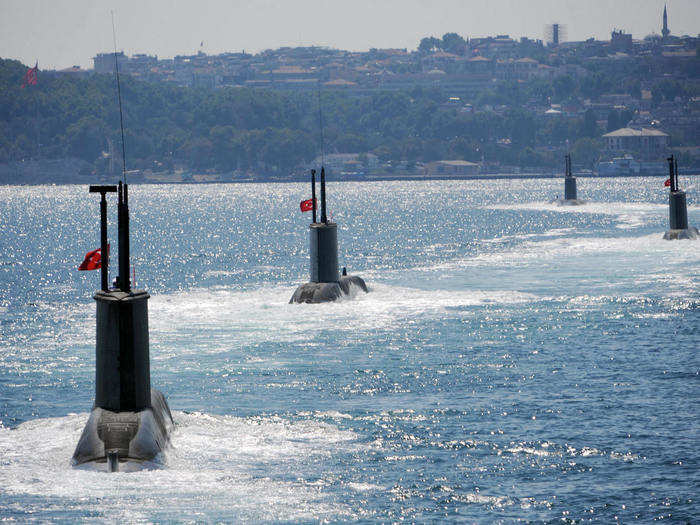
As a country bordering the Black Sea, Turkey is not bound by the Montreux Convention, which limits the number and size of the ships non-Black Sea countries can send into the sea and the length of time they can be there.
Russia has a variety of air and missile forces — such as anti-access/area denial systems that include S-400s in Crimea — in the region, but strictly in naval terms Turkey still has an edge.
"If NATO cannot depend on Turkey when it faces off against Russia, they effectively have lost their most important naval player in the Black Sea," where, outside of war, Turkey's navy is "even more important than the US Navy, because the US Navy is restricted in the amount of tonnage and the amount of warships it can send into the Black Sea at any one point," Lamrani said.
"If Turkey is not going to work with you, it's basically a Russian lake."
NATO officials have said repeatedly that the alliance's relations with Turkey, and Turkish involvement in NATO operations, continue unimpeded.
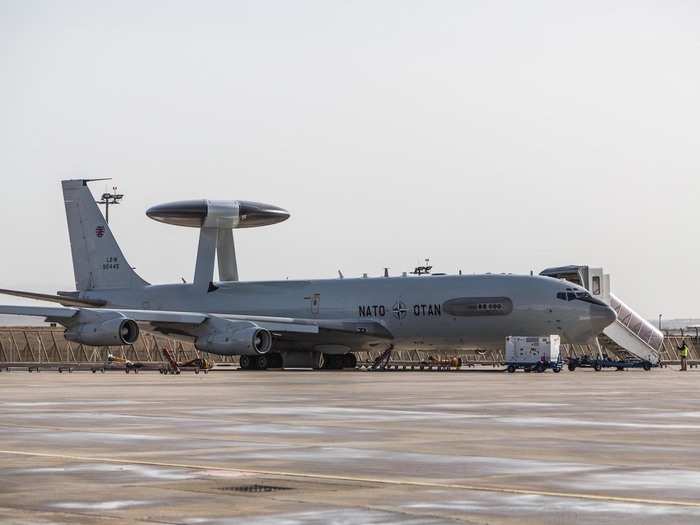
"Military-to-military relations with Turkey remain extremely strong, and they are very important, and I continue to enjoy a strong relationship with the Turkish chief of defense and with Turkish military authorities, and we continue to welcome and thank Turkey for their continued support for many NATO commissions, activities, and operations," Peach said at the breakfast.
"NATO continues to operate in all the seas where allies wish to undertake deterrence operations. That includes the Black Sea. We strictly abide by the terms and conditions set by the Montreux Convention," Peach added. "That includes activities by mine-countermeasures vessels and Standing Naval Maritime Patrols in the Black Sea and includes port visits to friendly ports and partner nations including Ukraine and Georgia."
"We continue to conduct surveillance operations, which are a matter of record, through a fleet of AWACs aircraft, which include forward bases in Turkey and other allied nations, and those missions are surveillance missions — they're not in any way aggressive."
But Turkey need not divorce its NATO allies for the alliance to be seriously weakened.
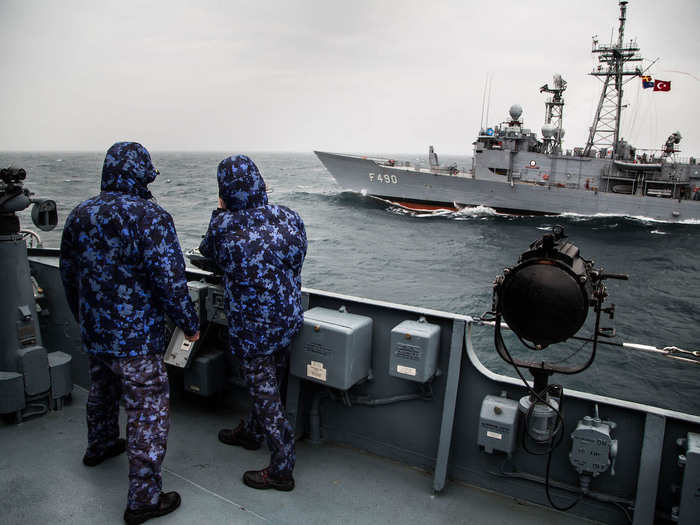
In a scenario where Turkey remains in the alliance but doesn't participate or cooperate with it, NATO's presence in the Black Sea and the alliance's ability to support members there would be severely diminished, Lamrani said.
"I think if you remove Turkey from the equation, and Russia does not have to worry about Turkey anymore in alliance maneuvers, then Russia is going to feel very confident that it has the Black Sea locked down."
"The NATO powers in the Black Sea — Romania, Bulgaria, their navies, their air forces — are very, very small. They're no threat whatsoever to Russia. Russia will be dominant in that region," Lamrani added. "The only real threat to the Russians in the Black Sea is Turkey."
Without Turkey's involvement, Romania and Bulgaria would be the only two NATO member-states on the Black Sea.
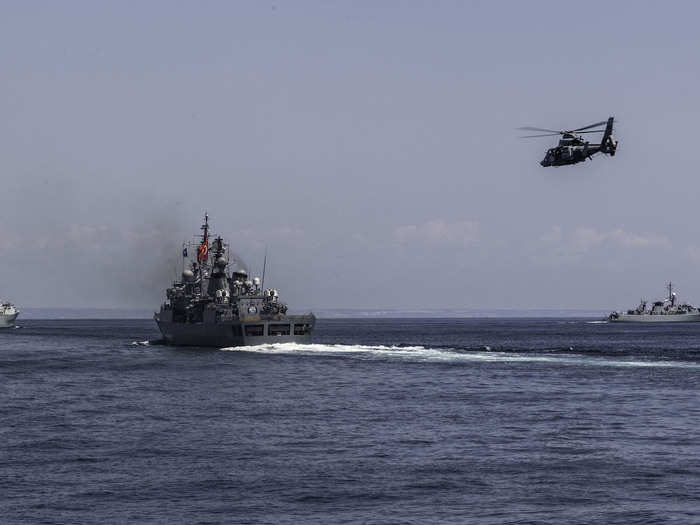
Romania and Bulgaria both joined NATO on March 29, 2004, two of seven countries inducted during the alliance's second wave of post-Cold War enlargement.
Both are active participants in NATO and the operations it conducts as a deterrent to Russian actions.
But both are also "really small militaries basically," Lamrani said. "In the grand scheme of things Bulgaria and Romania are not hefty military players, especially in comparison to Russia."
With Turkey absent and NATO thereby hindered, "Romania and Bulgaria may feel like they can't challenge Russia as much as before," Lamrani said.
Ukraine and Georgia are not in NATO, but both are under pressure from Russia and have drawn close to the alliance.
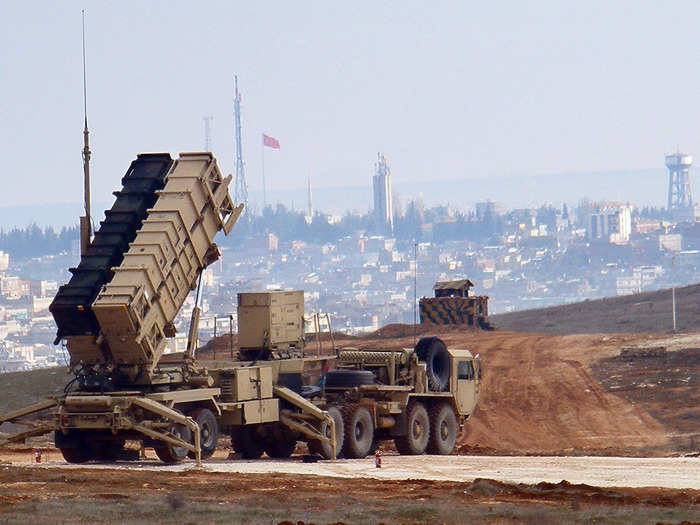
Two breakaway Georgian regions, South Ossetia and Abkhazia, have been occupied by Russia since the brief 2008 Russia-Georgia war.
Georgia's already precarious position — "smack between Turkey and Russia, [and] a very, very weak state" — would be exacerbated by Turkey pulling away from NATO, Lamrani said.
With Russia's seizure of Crimea and its ability to dictate movement around the Sea of Azov, where the Ukrainian port of Mariupol is located, Ukraine's already small navy is further diminished.
Ukraine shares its western border with several NATO members, but Russia continues to back separatists in eastern Ukraine and still has influence in Moldova and its breakaway region of Transnistria, which borders southern Ukraine.
Because of that western land border, a Turkish absence from NATO is "not necessarily a game-changer for Ukraine, and in naval terms, they're already kind of a lost cause," Lamrani said. "They're already a weak state."
Greece doesn't border the Black Sea but is in NATO and has a history of contentious relations with Turkey, which could be exacerbated if Ankara spurns NATO.
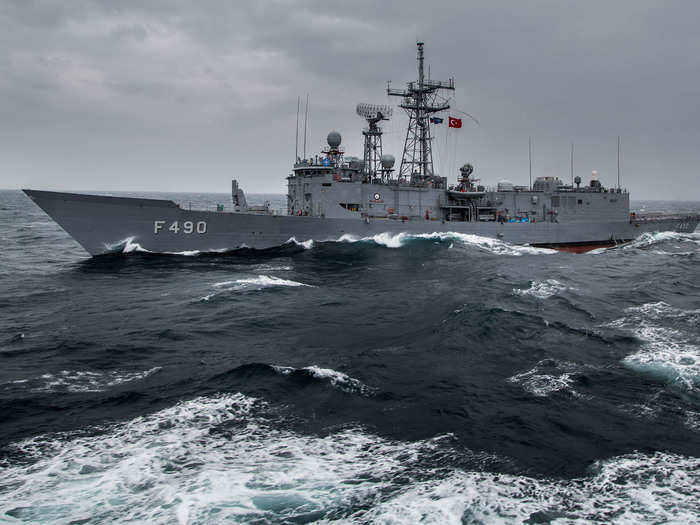
Greece and Turkey have historical disputes over territorial waters and airspace, and potential access to undersea resources has added to the stakes.
"It's a double-edged sword for Greece, because on the one hand, Greece would benefit from Turkey" not cooperating with NATO, Lamrani said.
"But it's also a disadvantage in the sense that NATO acted as a mechanism for long period to keep tensions to low ... to de-conflict between them," Lamrani added. "If you have Turkey shifting away and going toward Russia or pushing away from the alliance, you do have the risk that there could be increased friction in that zone."
Greece, which frequently hosts US naval and air forces, has already factored into tensions between the US and Turkey, with Greek media reporting in early 2018 that US officials discussed moving to Greece a "significant portion" of the US military forces at Turkey's Incirlik Air Base.
Increased friction "could result in potential clashes between Turkey and Greece, which would be a very big deal," Lamrani said. "You're talking about two very powerful countries. How does NATO respond to such hostilities, especially if you consider that Turkey might still be in the alliance?"
While Turkey may be a problem for NATO, it's not the only one in the neighborhood.
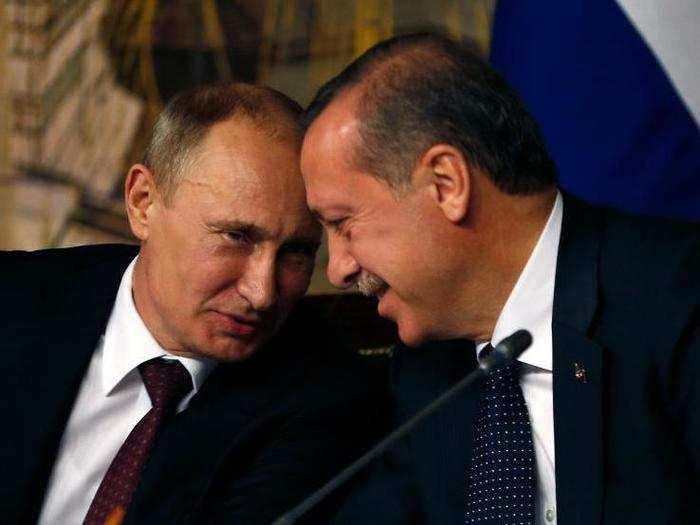
Russia is not bereft of friends in the Balkans, Lamrani said, pointing to Serbia in particular.
A 2016 coup attempt in Montenegro is believed to have been a Russian effort to keep the Balkan country from joining NATO, which it did the following year. A Montenegrin court ruled this year that Russian military intelligence agents coordinated the attempt from Serbia and were allowed to leave by Serbian authorities.
Moscow has sought to keep others out of NATO, including Serbia, which already buys Russian weapons and may buy more.
Southeastern Europe has been a concern for NATO for some time and for multiple reasons.
"In the '90s it was the instability ... and the conflicts there," Lamrani said. "Obviously now it's a concern because that's where Russia has the most influence in" Europe.
"There's been concern in NATO that Greece has some close ties with Russia ... Now you're talking about Turkey being in that same bucket while ironically Greece is shifting back to NATO," Lamrani added.
"There's definitely been longstanding concern with the southeastern flank, and now especially it's definitely the most troublesome in terms of the front line with Russia."
Popular Right Now
Popular Keywords
Advertisement